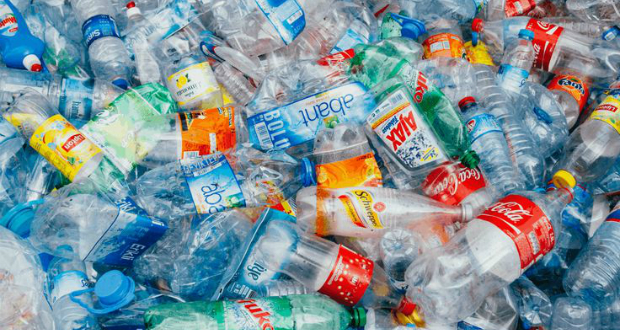Wales has taken significant steps to improve environmental sustainability through its mandatory workplace recycling initiatives. These regulations are designed to ensure that businesses prioritize recycling and reduce waste effectively, aiming for a greener future. With the increasing emphasis on sustainability, understanding these requirements is crucial for employers and employees alike.
The enforcement of recycling practices in workplaces aligns with Wales’ broader environmental goals, which aim to combat climate change and promote resource efficiency. Companies are required to adopt specific recycling practices, making it essential for them to stay informed about their obligations and best practices. This not only aids the environment but also enhances a company’s reputation and operational efficiency.
Navigating these regulations can be challenging, yet it presents an opportunity for workplaces to engage their employees and foster a culture of sustainability. By embracing these requirements, organizations contribute to a collective effort toward a cleaner, healthier environment for future generations.
Legislative Background
Wales has established a framework for mandatory workplace recycling, driven by environmental objectives and legal requirements. This section outlines the origins of recycling mandates and the existing legal structure that governs recycling practices in workplaces.
Origins of Recycling Mandates
The roots of recycling mandates in Wales can be traced back to broader environmental policies initiated in the late 20th century. The Waste and Emissions Trading Act 2003 played a crucial role in setting initial recycling targets.
In 2011, the Waste (Wales) Measure was introduced, establishing a comprehensive framework to enhance waste management practices. This measure aimed to promote recycling and waste reduction across various sectors, including workplaces. Subsequent legislation built upon these principles to foster sustainable waste practices in response to the growing environmental concerns.
Current Legal Framework
The current legal framework for workplace recycling in Wales encompasses several key pieces of legislation. The Waste (Wales) Regulations 2011 mandate businesses to separate recyclables from general waste, aiming to achieve specific recycling targets.
Additionally, the Environment (Wales) Act 2016 emphasizes the importance of improving biodiversity and reducing waste volumes. Local authorities are responsible for enforcing these regulations, including meticulous monitoring and reporting of waste management practices.
Workspace compliance is further supported by guidance documents issued by the Welsh Government, providing organizations with detailed steps to meet legal requirements effectively.
Implementation in the Workplace
Effective implementation of mandatory workplace recycling in Wales requires structured processes. This involves ensuring proper separation of materials, providing adequate education and training, and establishing consistent monitoring.
Separation and Collection
Workplaces must establish clear guidelines for the separation of recyclable materials. This includes designated bins for paper, plastics, metals, and organic waste.
Color-coded bins can simplify this process:
- Blue for paper
- Green for plastics
- Yellow for metals
- Brown for organic waste
Regular collection schedules should be established to ensure that recyclable materials do not accumulate. This minimizes contamination and maximizes recycling efficiency. It is essential to work with local recycling services to facilitate proper disposal and to keep updated on accepted materials.
Education and Training
Training employees on recycling procedures is crucial. Workshops and informational sessions can help raise awareness about the importance of recycling and how to participate effectively.
Creating easy-to-follow guidelines can enhance understanding. These materials may cover:
- Types of recyclable materials
- Proper disposal methods
- Impact of recycling on the environment
Ongoing training reinforces the significance of recycling practices. Encouraging employees to engage in discussions and share feedback can further enhance commitment to recycling initiatives.
Monitoring and Reporting
Monitoring the effectiveness of recycling efforts is vital. This involves tracking the volume of materials recycled and assessing contamination levels.
Regular audits can identify areas for improvement. Organizations should consider using a simple tracking system to record metrics such as:
- Weight of recycled materials
- Types of materials collected
- Participation rates
Reporting these findings to employees can foster a sense of accountability and encourage ongoing participation. A transparent approach allows organizations to refine their strategies and enhance overall recycling efforts in the workplace.
Economic Impact
The introduction of mandatory workplace recycling in Wales carries significant economic implications for businesses and the government. This section addresses various aspects, including the direct costs posed to companies, incentives offered by the government, and the potential for long-term savings.
Costs for Businesses
Businesses face initial expenses related to implementing mandatory recycling programs. These costs may include purchasing recycling bins, hiring additional staff, and training employees on proper recycling practices.
The magnitude of these expenses varies by company size. Smaller businesses might have lower upfront costs, while larger organizations could incur significant expenses due to their scale.
In addition, the need for ongoing management of recycling systems can add to operational costs. Companies must assess these expenses as they transition to comply with new regulations.
Government Incentives
To mitigate the financial burden, the Welsh government offers various incentives. These may include grants or financial support for businesses that invest in sustainable practices.
Tax relief or deductions could also be available for companies that exceed recycling targets. This structure encourages businesses to engage in recycling efforts and improve their sustainability profiles while minimizing strains on their budgets.
Moreover, support from local authorities may extend to providing resources or guidance. These incentives are designed to facilitate compliance and enhance economic viability.
Long-Term Savings
Investing in recycling programs often leads to long-term savings for businesses. Efficient waste management can reduce disposal costs significantly.
By recycling materials, companies also minimize their reliance on raw materials, which may fluctuate in price. This dependency can result in increased cost predictability over time.
Additionally, adopting sustainable practices can improve brand reputation. Companies that are perceived as environmentally responsible may attract more customers and retain existing ones, ultimately enhancing revenue prospects.
Environmental Benefits
Implementing mandatory workplace recycling in Wales provides significant environmental advantages. Focusing on waste reduction, resource conservation, and sustainability goals reveals the positive impact of these regulations.
Waste Reduction
Mandatory recycling policies lead to a noticeable decrease in waste sent to landfills. By adopting systematic recycling practices, businesses can significantly lower the volume of waste produced.
Companies that integrate recycling programs often see a drop in their overall waste output by up to 30%. This reduction directly contributes to a cleaner environment by minimizing the potential for soil and water contamination.
Moreover, recycling facilities can process materials more efficiently, turning waste into reusable products and decreasing the need for new landfills. These collective efforts can enhance community pride and support local initiatives for environmental stewardship.
Resource Conservation
Resource conservation is a critical benefit of mandatory recycling. Recycling materials such as paper, plastic, and metals conserves valuable natural resources and reduces the need for virgin materials.
For instance, recycling one ton of paper can save up to 24,000 gallons of water and reduce deforestation. This conservation is crucial in preserving ecosystems and protecting biodiversity, which can be adversely affected by resource extraction.
Additionally, reusing materials decreases energy consumption associated with manufacturing new products. Recycling typically uses less energy, leading to lower carbon emissions and a reduced ecological footprint.
Sustainability Goals
Mandatory recycling aligns with long-term sustainability goals. By fostering a culture of recycling, workplaces contribute to the development of sustainable practices within their communities.
Organizations can track their recycling efforts and set targets for improvement, contributing to national and local sustainability initiatives. These practices not only help mitigate climate change impacts but also promote corporate social responsibility.
Furthermore, engaging employees in recycling programs raises awareness about environmental issues, encouraging more sustainable behaviors both at work and home. This shared commitment supports a broader movement towards sustainability and environmentally friendly practices.




